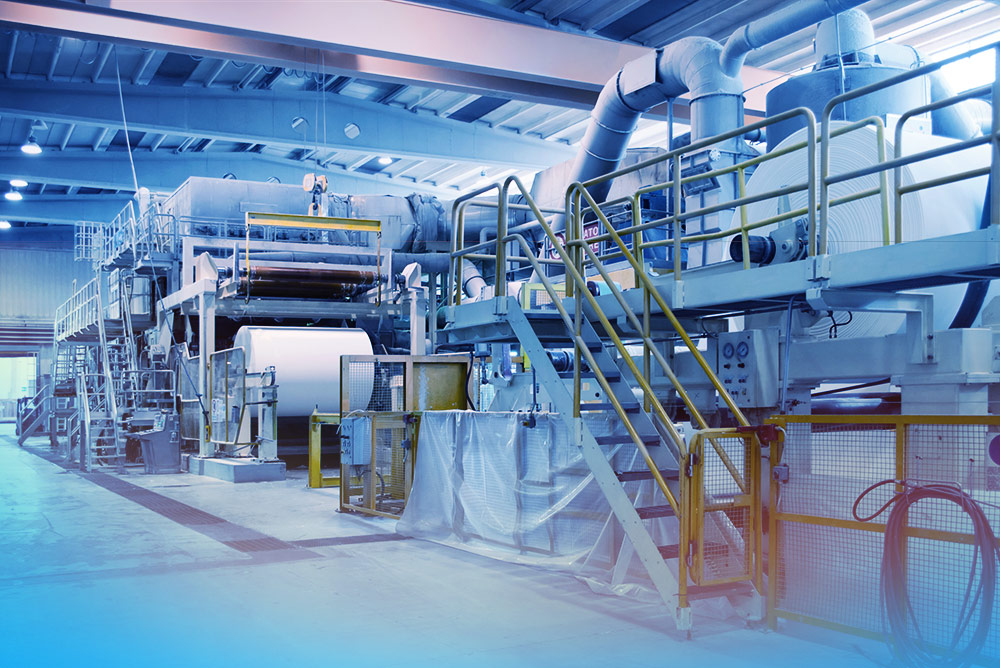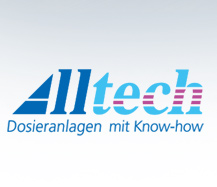Process water treatment in the paper industry.
Sophisticated Alltech dosing technology for process water in paper production
In the paper industry, process water is used for various purposes, including the manufacturing of paper products, equipment cleaning, and machine maintenance. During the manufacturing process, process water can accumulate contaminants such as fibers, starch, lignin, organic and inorganic chemicals, as well as fine solid particles. The purification of process water in the paper industry can be carried out in multiple stages, with each step targeting specific contaminants.
The quality of the end product in paper manufacturing is significantly influenced by the quality of the process water used.
Steps of process water treatment for the paper industry
Mechanical cleaning
The process water is first passed through screens, sedimentation tanks, and/or flotation units to remove solids such as wood residues, paper fiber waste, and other impurities.
Biological treatment
The purified water is then treated in biological purification plants to break down organic contaminants such as hydrocarbons, starch, and proteins. This process utilizes microorganisms present in the water.
Chemical treatment
If the water is still inadequately cleaned after the biological treatment, it undergoes chemical treatment in chemical purification plants. Chemicals such as chlorine or ozone are used to further break down or oxidize remaining contaminants.

Desalination
In some cases, the purified water is also demineralized to reduce the risk of corrosion and deposits in the paper production process. Methods such as reverse osmosis, ion exchange, or electrodialysis are used for this purpose.
Storage and reuse
The treated water is stored in dedicated storage tanks before being reintroduced into the production process. The reuse of process water helps to reduce water supply costs and minimize environmental impact.
Alltech products for process water treatment and retention in the paper industry:
Dosage of defoamers:
- Storage and dosing stations for defoamers
- FKM piston-diaphragm dosing pumps
Dosage of hydrogen peroxide:
- Storage containers, complete with all safety and monitoring devices
- FMP dosing pumps
- Complete dosing systems
Dosage of biocides:
- Storage and dosing stations for biocides
- FKM piston-diaphragm dosing pumps
Alltech reference projects in the paper industry
Comprehensive project support
Alltech provides end-to-end project management for process water treatment projects in the paper industry, from planning to manufacturing, installation, and commissioning. We also offer on-site support for TÜV inspections and provide comprehensive training to wastewater treatment plant personnel for the operation of the entire dosing technology.
Comprehensive project support
Alltech führt Projekte der Prozesswasseraufbereitung in der Papierindustie von der Planung bis zur Herstellung, Montage und Inbetriebnahme durch. Auch die TÜV-Abnahme vor Ort wird begleitet und die Mitarbeiter der Kläranlage eingehend bei der Inbetriebnahme der gesamten Dosiertechnik geschult.

